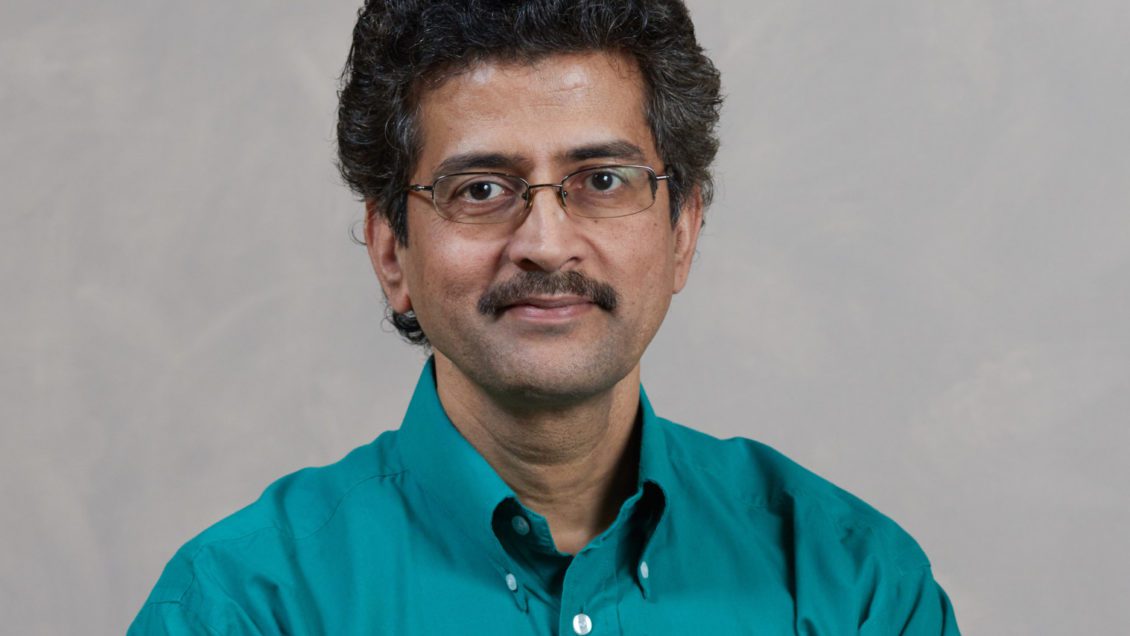CLEMSON, S.C. — Clemson University Department of Physics and Astronomy faculty member Apparao Rao was selected as a 2020 Fellow of the Materials Research Society (MRS) for developing liquid-based scalable synthesis methods to manufacture carbon nanotubes — a class of nanomaterials used in numerous applications, including energy storage, medicine, electronics, and composites.
MRS confers this prestigious honor on only 0.02 percent of its members each year for lifetime recognition of their research, leadership or service to the materials field. Rao is the first faculty member at Clemson and in the entire State of South Carolina to earn Fellow status in this society.
“In the past five years, on average, MRS elected only 18 members across the globe as Fellows each year, so when I look at all the previous MRS Fellows, I feel very humbled to be in their company,” said Rao, who holds an R. A. Bowen Endowed Professorship in the College of Science and is the founding director of the Clemson Nanomaterials Institute. “From my own experience at Clemson University, if you build the right team with highly motivated students, you can accomplish world-class research.”

Rao said he’s grateful for the support of several people who helped him launch his Clemson career, including his wife Vasantha Rao, former physics department head Peter Barnes, and former VP for research Larry Dooley. Above all, Rao acknowledges the seed funding he received through the R.A. Bowen Endowed Professorship to explore new vistas in nanomaterials research.
Rao joined the Clemson physics faculty in 2000. Previously, he conducted research as a post-doctoral researcher at the Massachusetts Institute of Technology under the guidance of 2009 MRS Fellow, Kavli Laureate, and MIT Professor Mildred Dresselhaus, known as the “Queen of Carbon” science for her pioneering research in low dimensional materials, including carbon nanotubes.
“Dr. Rao continues to elevate Clemson’s national prominence in scientific discovery and innovation and this very special recognition as an MRS elected Fellow is one more nod to some of the pioneering work our great faculty are leading at Clemson,” said Cynthia Y. Young, College of Science dean. “I congratulate Professor Rao, and I thank the late Robert Adger Bowen for his transformational gift that established endowed professorships in Science — like the professorship held by Rao.”
According to Sean Brittain, the chair of Clemson’s department of physics and astronomy, Rao is not only a pioneering researcher, but his work has helped elucidate the fundamental properties of carbon systems, and he has used that insight for innovative applications that benefit humanity.
In addition to his scholarly leadership, Rao is a caring and effective mentor. “He has launched the careers of countless graduate students who have taken their education to industry and academia,” Brittain said. “He is also a tireless mentor and advocate for our junior faculty, who are now well-established scholars in their own right.”
During his 20-year career at Clemson, Rao has pioneered the use of liquid-injection chemical vapor deposition as a means to making nanomaterials like carbon nanotubes. In the early 2000s, he and his student Jay Gaillard (Ph.D. 2006) devised a one-step synthesis method that vastly improved the manufacturing process.
According to Rao, the previous growth methods involved two steps: depositing a catalyst particle on a substrate surface followed by decomposing a hydrocarbon gas.
“Industry doesn’t like a multi-step process because it could be expensive and time consuming,” Rao explained. “What we did was put the catalyst in our liquid mix and then injected the mix onto a substrate that was heated inside a furnace. By controlling the injection rates and the growth conditions, we grew very high-purity nanotubes on substrates such as quartz and silicon.”
Four years later in 2004, Rao’s team experimented with different catalysts in the liquid-injection method to make carbon nanotubes grow into Y-shaped or branched nanotubes. Along with his faculty colleague Prabhakar Bandaru from the University of California at San Diego, they demonstrated that the Y-shaped nanotubes could function as nanoscale transistors.
“Using the liquid-injection method, my team also developed methods to introduce defects, such as dopants or missing atoms in the carbon lattice in a controlled fashion,” said Rao, which enabled the preparation of p-type and n-type nanotubes.

Collectively, the liquid-injection method helped establish two paradigms: “shape defines function,” namely that nanotubes function as transistors when Y-shaped, and they function as shock absorbers when coiled; and “proper defects enable better material performance,” which was presented at a local TED event.
Rao’s full MRS Fellow citation reads: “For pioneering liquid-based scalable synthetic methods to manufacture carbon nanotubes with controlled morphologies and dopant concentrations, and for using Raman spectroscopy to elucidate their structure — applications and fundamental properties.”
In addition to this latest honor, Rao is a Fellow of National Academy of Inventors, the American Physical Society and the American Association for the Advancement of Science.
About the Materials Research Society
MRS is an international organization of approximately 14,000 materials researchers from academia, industry and government, and is a recognized leader in promoting the advancement of interdisciplinary materials research and technology to improve the quality of life. MRS members come from physics, chemistry, biology, mathematics and engineering — the full spectrum of materials research.
Get in touch and we will connect you with the author or another expert.
Or email us at news@clemson.edu

